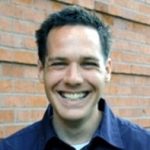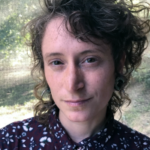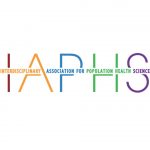 |
CSDE NEWS & EVENTS
May 20, 2024
|
CSDE Seminar Series
|
CSDE Seminar – Measuring the Hidden Burden of Violence: Use of Explicit and Proxy Diagnoses Codes for Violence Identification and its Association with Economic Hardship
When: Friday, May 24, 2024 (12:30-1:30 PM)
Where: 360 PAR and Zoom (register here)
CSDE welcomes you to a seminar with Jeanie Santaularia (Epidemiology, UW) on Friday, May 24th from 12:30-1:30 in 360 PAR and on Zoom (register here). Dr. Santaularia (she/her/ella) is an interdisciplinary population health researcher. Before coming to UW she was a Postdoctoral Scholar in Population Science with the Carolina Population Center at the University of North Carolina at Chapel Hill. She completed her doctoral training in Epidemiology from the University of Minnesota and Master of Public Health in Epidemiology from the University of Illinois at Chicago. Prior to beginning her doctoral studies, Dr. Santaularia worked in various capacities with local and state governments in epidemiological surveillance and practice.
Her primary areas of research include violence prevention, social epidemiology, health equity, social determinants of health, and analytical methods to obtain causal estimates in social epidemiology when traditional randomized control trials are either not feasible or unethical. Dr. Santaularia’s current body of research examines how: (1) social and institutional determinants influence violence; and (2) violence gets under the skin or is ‘embodied’ to impact health. She aims to expand this research to better understand the cumulative influence of violence over the life course as well as the roles of society, community, psychosocial and family protective factors in offsetting negative outcomes due to violence. Ultimately, she will build on this research to develop and test scalable interventions in underserved populations informed by understanding the role of larger social structures, familial and cultural contexts.
(read more)
|
 |
|
|
CSDE Research & Highlights
|
New Research by Bratman and Colleagues Emphasizes the Olfactory Pathway Between Nature and Human Well-being
CSDE Affiliate Gregory Bratman (College of the Environment) released an article with co-authors in Science Advances, titled “Nature and human well-being: The olfactory pathway“. The world is undergoing massive atmospheric and ecological change, driving unprecedented challenges to human well-being. Olfaction is a key sensory system through which these impacts occur. The sense of smell influences quality of and satisfaction with life, emotion, emotion regulation, cognitive function, social interactions, dietary choices, stress, and depressive symptoms. Exposures via the olfactory pathway can also lead to (anti-)inflammatory outcomes. Authors integrate perspectives from a range of health, social, and natural systems to provide an overview of this unique sensory system and its role in the pathway between natural environments and human well-being. This fascinating research was supported by a Population Planning Research Grant (PPRG) from CSDE. This research was also featured in an article by UW News, where Bratman discusses the project's significance.
(read more)
|
 |
Pelletier to Present in UW’s Three Minute Thesis (3MT) Competition on May 23 (Thursday @3pm)!
CSDE Trainee Lizzy Pelletier (Evans School of Public Policy & Governance) will be presenting at this year’s UW Three Minute Thesis (3MT) Competition! Lizzy’s talk is titled ‘Does Paid Leave Help All Parents?’. UW 3MT is a professional development competition that celebrates the exciting capstone and research experiences of master’s and doctoral students at the University of Washington. The competition supports graduate students’ capacity to effectively explain their research or capstone project in three minutes, in a language appropriate to a public audience. The event will occur on Thursday, May 23, 2024 from 3:00-4:00 in the auditorium of Alder Hall. Doors open at 2:30 pm. RSVP here and cheer Lizzy on!
(read more)
|
 |
Flores, Casey, and Colleagues Highlight the Disproportionate Impacts of Severe Weather-driven Power Outages
CSDE Affiliate Joan Casey and colleagues released an article in Plos Climate, titled “Powerless in the storm: Severe weather-driven power outages in New York State, 2017–2020“. This article was lead-authored by Nina Flores, a Phd candidate in Columbia University’s Mailman School of Public Health. Flores and Casey also discussed their findings in a co-authored piece in The Conversation. The vulnerability of the power grid to severe weather events is a critical issue as climate change is expected to increase extreme events, which can damage components of the power grid and/or lessen electrical power supply, resulting in power outages. However, largely due to an absence of granular spatiotemporal outage data, we lack a robust understanding of how severe weather-driven outages, their community impacts, and their durations distribute across space and socioeconomic vulnerability. Here, authors pair hourly power outage data in electrical power operating localities (n = 1865) throughout NYS with urbanicity, CDC Social Vulnerability Index, and hourly weather (temperature, precipitation, wind speed, lightning strike, snowfall) data. Authors used these data to characterize the impact of extreme weather events on power outages from 2017–2020, while considering neighborhood vulnerability factors.
(read more)
|
 |
Berridge and Co-authors Offer a Research Agenda on AI and Aging
Goldhaber’s New Research Examines the College and Employment Pathways of Prospective Teachers
CSDE Affiliate Dan Goldhaber (Social Work) in Educational Researcher, titled “The Long and Winding Road: Mapping the College and Employment Pathways to Teacher Education Program Completion in Washington State“. Nationally, more than 75% of individuals who are credentialed to teach are prepared in traditional college- or university-based teacher education programs (TEPs). But the college and employment pathways that prospective teachers take to TEP enrollment and completion have not been comprehensively examined. A better understanding of how credentialed individuals find their way into TEPs helps us understand the sources of new teacher supply early in the prospective teacher pipeline. With that in mind, authors analyze pathways into and through TEPs using historical postsecondary and unemployment insurance data from Washington State.
(read more)
|
 |
New Research by McElroy Critically Examines Landlord Technology
CSDE Affiliate Erin McElroy (Geography) authored new research in Environment and Planning D: Society and Space, titled “The work of landlord technology: The fictions of frictionless property management“. Landlord technology—or the systems used by landlords to control and regulate tenant lives, spaces, and data—frequently promises “frictionless” building management and residential experiences. Yet services such as “digital doormen” and virtual property management platforms often create more work for tenants. With a proposition that new forms of material and affective labor are created by landlord technologies despite promises of frictionless living, this article focuses on the various struggles that workers and tenants face in using, maintaining, refusing, and, at times, organizing against property automation.
(read more)
|
 |
Burt Discusses Use of Polygenic Indices in Social Science
CSDE Affiliate Callie Burt (Criminal Justice and Criminology, Georgia State University) released a new article in Sociological Methodology, titled “Polygenic Indices (aka Polygenic Scores) in Social Science: A Guide for Interpretation and Evaluation“. Polygenic indices (PGI)—the new recommended label for polygenic scores in social science applications—are genetic summary scales often used to represent an individual’s liability for a disease, trait, or behavior on the basis of the additive effects of measured genetic variants. Enthusiasm for linking genetic data with social outcomes and the inclusion of premade PGIs in social science data sets have facilitated increased uptake of PGIs in social science research, a trend that will likely continue. Yet most social scientists lack the expertise to interpret and evaluate PGIs in social science research. In this article, Burt provides a primer on PGIs for social scientists focusing on key concepts, unique statistical genetic considerations, and best practices in calculation, estimation, reporting, and interpretation.
(read more)
|
 |
|
|
Updates from the CSDE Research & Training Cores
|
Spring Schedule for CSDE Workshops and Working Groups
|
In spring quarter, CSDE will be hosting a workshop series and several working groups. Students, faculty, and staff are all welcome to register and we welcome registrants from outside the University of Washington for our remote workshops as well.
Please reach out to CSDE’s Training Director, Jessica Godwin (jlg0003@uw.edu), if you have additional workshops you would like to see offered in the future and we will do our best to accommodate those requests. View the schedule as a pdf here.
CSDE Workshops
No remaining workshops this quarter.
CSDE Working Groups
- Computational Demography Working Group
- Biomarker Working Group
- Date: 1st Thursdaysof each month (4/4, 5/2, 6/6) @ 12:30PM-1:30PM
- Location: Raitt 223
- Contact: Tiffany Pan (tpan@uw.edu)
- Migration & Settlements Working Group
- Date: Every other Friday @ 9:00AM starting March 29th
- Location: Raitt 114/Zoom (meeting link)
- Contact: Aryaa Rajouria (rajouria@uw.edu)
(read more)
|
 |
CSDE Computational Demography Working Group (CDWG) Hosts Aja Sutton on Incorporating spatial structure into multilevel regression and poststratification for subnational demographic and small area estimation (5/22/2024)
|
On Wednesday, May 22nd from 9:00 AM – 10:00 AM, CDWG will host Dr. Aja Sutton to introduce her research. Dr. Aja Sutton is a Postdoctoral Scholar in the Social Sciences Division at the Stanford Doerr School of Sustainability, Stanford University. She received her PhD from the Department of Geography at the University of Washington (UW). From 2020-2022 she was TADA-BSSR NIH T32 Fellow in Data Science and Demography Training at UW's Center for Studies in Demography and Ecology, from which she also holds a Certificate in Demographic Methods. She received an MA in History from Western University, and an MSc in Palaeopathology from Durham University. Her work is focused on population health, computational social science, and epidemiology. The event will take place in 223 Raitt and on Zoom (register here).
(read more)
|
 |
CSDE Computational Demography Working Group (CDWG) Hosts Risto Conte Keivabu on The effect of temperature on cognitive abilities and expressed sentiment: evidence from text data (5/29/2024)
|
On May 29th from 9:00 AM – 10:00 AM, Dr. Risto Conte Keivabu will join CDWG to present his research. Dr. Risto Conte Keivabu is a postdoc in the Laboratory of Digital and Computational Demography of Emilio Zagheni at the Max Planck Institute of Demographic Research in Rostock (Germany). His research interests are in climate change, socio-demographic inequalities and demography. More precisely, in his work he tries to understand the population consequences of climate change and environmental exposures. The event will take place in 223 Raitt (the Demography Lab) and on Zoom (register here). Learn more in the full story!
(read more)
|
 |
*New* Celebrate Trainees’ Accomplishments & Join End-of-Year Reception! (5/31/24)
|
Join us for CSDE’s annual closing reception in 320 PAR on Friday May 31st from 12:30-1:30 PM! We’ll present Demographic Methods Certificates and celebrate the end of a successful academic year. Please join us in recognizing all of these accomplishments! Every member of the CSDE community plays an important role in our broader research network and training program.
(read more)
|
 |
*New* Issue of Journal of Demographic Economics
Read volume 90, issue 2 here!
(read more)
*New* Registration is Now Open for the 2024 IAPHS Annual Conference
|
Registration is open on April 4, 2024 for the IAPHS Annual Conference from September 10-13 in St. Louis, MO. Numerous population health topics will be discussed related to the 2024 conference theme, Tackling Declining Life Expectancy in the U.S.: Investigating Social Drivers and Policy Solutions, are particularly encouraged. Register here before August 16th for the early registration rate.
(read more)
|
 |
*New* NIH Announces a Notice of Special Interest: Women’s Health Research
|
In alignment with the White House Initiative on Women’s Health Research, the National Institutes of Health (NIH) is issuing this Notice of Special Interest (NOSI) to highlight interest in receiving research applications focused on diseases and health conditions that predominantly affect women (e.g., autoimmune diseases; depressive disorders, Alzheimer’s disease (AD) and Alzheimer’s disease-related dementias (ADRD), gender-based-violence), present and progress differently in women (e.g., cardiovascular disease; HIV; reproductive aging and its implications), or are female-specific (e.g., uterine fibroids; endometriosis; menopause). This NOSI has an expiration of November 5th, 2027.
(read more)
|
 |
*New* NIH Notice of Funding Opportunity: Building Interdisciplinary Research Careers in Women’s Health (BIRCWH) (K12 Clinical Trial Optional) (RFA-OD-24-013)
|
The NIH Office of Research on Women’s Health (ORWH) and participating NIH Institutes, Centers, and Offices (ICOs) invite institutional career development award applications for Building Interdisciplinary Research Careers in Women’s Health (BIRCWH) Career Development Programs, hereafter termed “Programs”. Programs will support mentored research career development of junior faculty members, known as BIRCWH Scholars, who have recently completed clinical training or postdoctoral fellowships, and who will be engaged in interdisciplinary basic, translational, data science, behavioral, clinical, and/or health services research relevant to the health of women and, where appropriate, the use of both sexes to better understand the influence of sex as a biological variable on health and disease.
(read more)
|
 |
*New* Announcing Revisions to the NIH Fellowship Review and Application Process
|
The NIH is pleased to announce the details of changes to the peer review process and application forms for fellowship applications, to be implemented for applications submitted for due dates on or after January 25th, 2025. (See NOT-OD-24-107.) These changes are meant to facilitate the identification of the most promising candidates and the individualized training opportunities that will assist these researchers along their paths to careers in biomedical research. Read more in the full story and in the NIH post.
(read more)
|
 |
*New* Interested in a summer research position at the U.S. Census? Come to an informational meeting on May 21st
Are you interested in a summer research position in the Population Division of the U.S. Census? On Tuesday, May 21st from 1:30pm-2:30pm in Raitt 223, you have the opportunity to meet with Eric B. Jensen, Senior Research Scientist for the Population Estimates and Coverage team in the Population Division at the U.S. Census Bureau to discuss the team’s research projects and internship opportunities for this summer. A brochure on the program and projects can be found here. (read more)
|
 |
Have an idea for an NIH application? Here is when/what/who to email about your idea!
|
At a recent meeting, Rebecca Clark, chief of the Population Dynamics Bureau (PDB) at NICHD, provided useful insights on how researchers developing new proposals should contact officials at NIH. Her remarks were focused on PDB at NICHD, but the advice seems broadly generalizable to other institutes as well. She states: If you have specific aims, please send them to just one PDB Program Officers in one email. (NB: Do not send separate emails to each program officer within a branch, since they all confer and collaborate on any incoming inquiries.)
All potential applicants, including those who have prepared specific aims, should send responses to the following items and attach to the email inquiry:
(read more)
|
 |
Many CSDE-Relevant Grant Opportunities at NICHD!
|
The NICHD has listed many grant opportunities that should be of interest to CSDE affiliates. Check out the list here. If you are interested, CSDE can help you with providing ‘eyes’ for feedback on the narrative, contacting a program officer, more formalized mock review panel of experts to provide feedback on a penultimate draft, a summer grant writing program, or scientific methods consultations. We’re happy to support your science! Just ask!
(read more)
|
 |
CSDE Population Research Planning Grants (PRPGs) (Rolling deadline)
|
Population Research Planning Grants (PRPGs) are designed to provide in-kind support and/or funds of up to $25k* to support a wide array of activity types throughout the development of a research project. As part of our mission to complement rather than duplicate other campus opportunities such as the Population Health Initiative seed grants, we will consider funding a variety of activities. See a list of example activities in the full story!
(read more)
|
 |
CSDE Matching Support to Supplement On-campus Funding (Rolling deadline)
|
CSDE Matching Support includes in-kind or monetary support to accompany a submission to other on-campus funding mechanism, such as PHI, EarthLab, or Urban@UW. All projects must have a CSDE affiliate who is UW faculty and is listed as a PI or co-PI, with any number of other collaborators. Note that we require (PRPGs) or strongly suggest (matching funds) contacting either Development Core Director (Steven Goodreau) or CSDE Director (Sara Curran) to discuss possibilities for your specific proposal before submission.
(read more)
|
 |
|
|
OPPORTUNITIES
|
Demography Events
Conferences & Calls for Papers
Funding
- Request for Proposals: How Effective Was the Fiscal Response to the COVID-19 Recession for U.S. Workers? (Deadline: 5/20/2024)
- Opportunity for Funding from the Northwest Climate Adaptation Science Center: FY25 Project Solicitation, USGS-Directed Funding (Deadline: 5/23/2024)
- Applications Are Open for the Bulitt Prize $100,000 Springboard for Change Prize (Deadline: 6/1/2024)
- NSF Funding Opportunity: Confronting Hazards, Impacts and Risks for a Resilient Planet (CHIRRP) (Concept outlines due by 5/9, Full Proposal due 6/9/24)
- Funding Opportunity from the Northwest Climate Adaptation Science Center: 2025 Faculty Fellowship Program, Consortium-Directed Funding (Deadline: 7/15/2024)
- NIH Funding (RFA-OD-24-006): Interventions to Address Social Determinants of Health in Populations that Experience Health Disparities (Deadline: 8/5/2024)
- NIH Funding (PAR-24-053): Interventions to Address Social Determinants of Health in Populations that Experience Health Disparities (Deadline: 8/5/2024)
- *New* NIH Opportunity for Funding: Building Interdisciplinary Research Careers in Women’s Health (BIRCWH) (K12 Clinical Trial Optional) (RFA-OD-24-013)
- Opportunity for Funding: Using Longitudinal Data to Support State Education Policymaking Grants (Deadline: 8/15/2024)
- Opportunity for Funding: Transformative Research in the Education Sciences Grants (Deadline: 9/12/2024)
- NIH Funding: Ethical, Legal and Social Implications (ELSI) Small Research Grant (R03 Clinical Trial Optional) (Deadline: 11/17/2026)
- NIH Funding: Ethical, Legal and Social Implications (ELSI) Research (R01 Clinical Trial Optional) (Deadline: 11/19/2026)
- Ethical, Legal and Social Implications (ELSI) Exploratory/Developmental Research Grant (R21 Clinical Trial Optional) (Deadline: 11/19/2026)
- NIH Funding for Research on Screening and Treatment for Alcohol, Tobacco, and Other Drugs (Deadline: 3/8/2027)
- *New* NIH Announces a Notice of Special Interest: Women’s Health Research (11/5/2027) (Deadline: 11/5/2027)
- NSF Graduate Research Internships in Forensic Science and Criminal Justice Contexts (Applications accepted at any time)
- CSDE Population Research Planning Grants (PRPGs) (Rolling deadline)
- NSF SBE Dear Colleague Letter Encourages Research on the Science of Bias, Prejudice and Discrimination
- ARPA-H Hits the Ground Running with Sprint for Women’s Health (Opportunities to be announced)
- NSF Dear Colleague Letter on Funding Opportunities for Science and Engineering Research with Impact on Women’s Health
Employment
- *New* Senior Data Governance and Operations Specialist Washington Office of Financial Management (Deadline: 5/31/2024)
- *New* Senior Executive Service Chief Evaluation Officer U.S. Department of Labor (Deadline: 6/3/2024)
- Postdoctoral Fellow in Global Aging University of Pennsylvania's Population Aging Research Center (Deadline: 7/1/2024)
- Assistant Professor of Sociology (Culture, Digital Media and/or Technology): Position #2 (Deadline: 9/15/2024)
- Assistant Professor of Sociology (Race & Ethnicity): Position #1 University of Oregon (Deadline: 9/25/2024)
- Department of Global Health – Tenure Track Assistant or Associate Professor Emory University (Deadline: 9/30/2024)
- Two Postdoctoral Associates – Sociology (Open until filled) Rice University
- Behavioral Scientist (Program Director) (Open until filled) Behavioral and Cognitive Sciences (SBE/BCS) Division of the NSF
- Maternal and Child Health Department Chair and Full Professor (Open until filled) University of North Carolina, Chapel Hill
- Assistant Professor in the Broad Area of Social Genomics, Behavior Genomics and Related Fields (Open until filled) Purdue University
- Postdoctoral researchers/research associates (Open until filled) Social Action Lab at the University of Pennsylvania
- Post-Doctoral Associate in the Division of Social Science (Open until filled) New York University Abu Dhabi
- Open Rank Faculty, Educator: SOPH Population Health Science (Open until filled) The University of Mississippi Medical Center
- Professor: SOPH Chair of Population Health Science (Open until filled) University of Mississippi Medical Center
- Postdoctoral Researcher (Project on social determinants of health in Puerto Rico) (Open until filled)
- Public Policy Analyst (Open until filled) Kem C. Gardner Policy Institute, University of Utah
- Data Science Instructor (Open until filled) University of California, San Francisco
- Research Associate in Family Demography (Open until filled) Pew Research Center
- *New* Postdoc, Impact Data and Evidence Aggregation Library (Open until filled) Center for Effective Global Action (CEGA), UC Berkeley
- *New* Senior Manager, Evaluation and Impact (Open until filled) Within Reach (remote/hybrid)
- *New* Senior Research Manager, Primary Health Care (Open until filled) The Gates Foundation
|
|
 |
| Center for Studies in Demography and Ecology |
csde@uw.edu
206 Raitt Hall
(206) 616-7743 |
UW Box 353412
Seattle, WA
98195-3412 |
  |
|
|
Is this email not
displaying correctly?
View it online. |
You are receiving this email because of an interest in Center for Studies in Demography and Ecology. To update your profile and subscription status, click here. |
|
|

